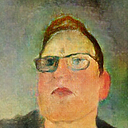Hi Chris, the evidence is right there in the next paragraph, but allow me to elaborate.
Two premises:
- It’s indisputable that there is more speech now that Internet is fully developed than there was in the 1990s, when there were only a few thousand web pages.
- Bad speech is more of a problem than it was in the 1990s.
Taken together 1 & 2 indicate that more speech has not done anything to eliminate bad speech.
The opposite has actually happened. Marginal fanatics have gained a massive platform that they never would have otherwise.
I lived in Austin for 10 years. I remember when Alex Jones was just some local weirdo screaming about the Branch Davidians and fluoridation on cable access. I never imagined in a million years that he’d be a public figure with 3 million subscribers on Youtube and a direct line to the president.
You can’t really find hard evidence that academia—or society in general—is substantially more “politically correct” than it was 20 years ago.The satire of campus political correctness PCU came out in 1994. College was like that when I was attending 10 years later and it’s still more or less the same. Reactionary pundits just complain about it more.
So look at it scientifically. Political correctness has remained relatively constant whereas speech has exploded.
Pinker is talking about this all in the abstract. Sure, taboos exist but it doesn’t mean that these subjects aren’t talked about on campuses in the relevant classes. We discussed race and crime in Sociology of Criminal Justice. People talk about between-group differences in IQ all the time in any college psychometrics course, and in the scientific literature.
So what is he proposing? Should the Student Union be having a forum on the “Jewish Question?” Where are we drawing the line here? Ask any anthropologist. Taboos serve a social function. The far-right is trying to push the Overton Window and we have to hold the line.
The fact is that when these subjects are addressed openly in an academic setting and “put in perspective,” they’re rejected as “cultural Marxist” propaganda.
When we talk about the “marketplace of ideas” that implies that ideas contend with one another on an even plane, when in reality ideas have a relationship to power.
Even if individual faculty within the university structure tend to lean left, the university as an institution exists within a broader ideological hegemony.
Continuing with that analogy, marketplaces need regulations to function. You need food inspectors to make sure nobody is putting formaldehyde in the Chicken Nuggets.
I’m not arguing for legal censorship or the criminalization of speech. I am arguing for denying certain toxic viewpoints access to mass platforms on which to spread.
As to directing debates at third parties, I’m somewhat partial to that argument. In union organizing, you assign people a number from 1 to 5, with five being hostile to you and 4 being opposed. I think there are certain folks who are a 3 on the path to radicalization that can be reached, but it has to be done strategically.
There are quite a few Youtubers—Shaun, Three Arrows, Hbomb, and Contrapoints—who do response videos against alt-right Youtubers, but they’re conscious not to signal-boost them. They only target channels that have more followers than them.
But it can also backfire. A person with academic credentials can debate an alt-right personality and make an argument that is fundamentally correct, well-sourced, etc. and the viewers, who don’t understand the core concepts—ex. IQ and heritability—might come away thinking that they actually lost the debate, and then clips of the video get posted on Youtube with some title like “Watch CuckSlayer666 DESTROY Libtard Egghead Professor!!!”
Pinker says taboos stoke the alt-right by “giving them the sense that there were truths the academic establishment could not face up to.”
But there’s just as much risk that that will happen when academics actually try to address those issues.
